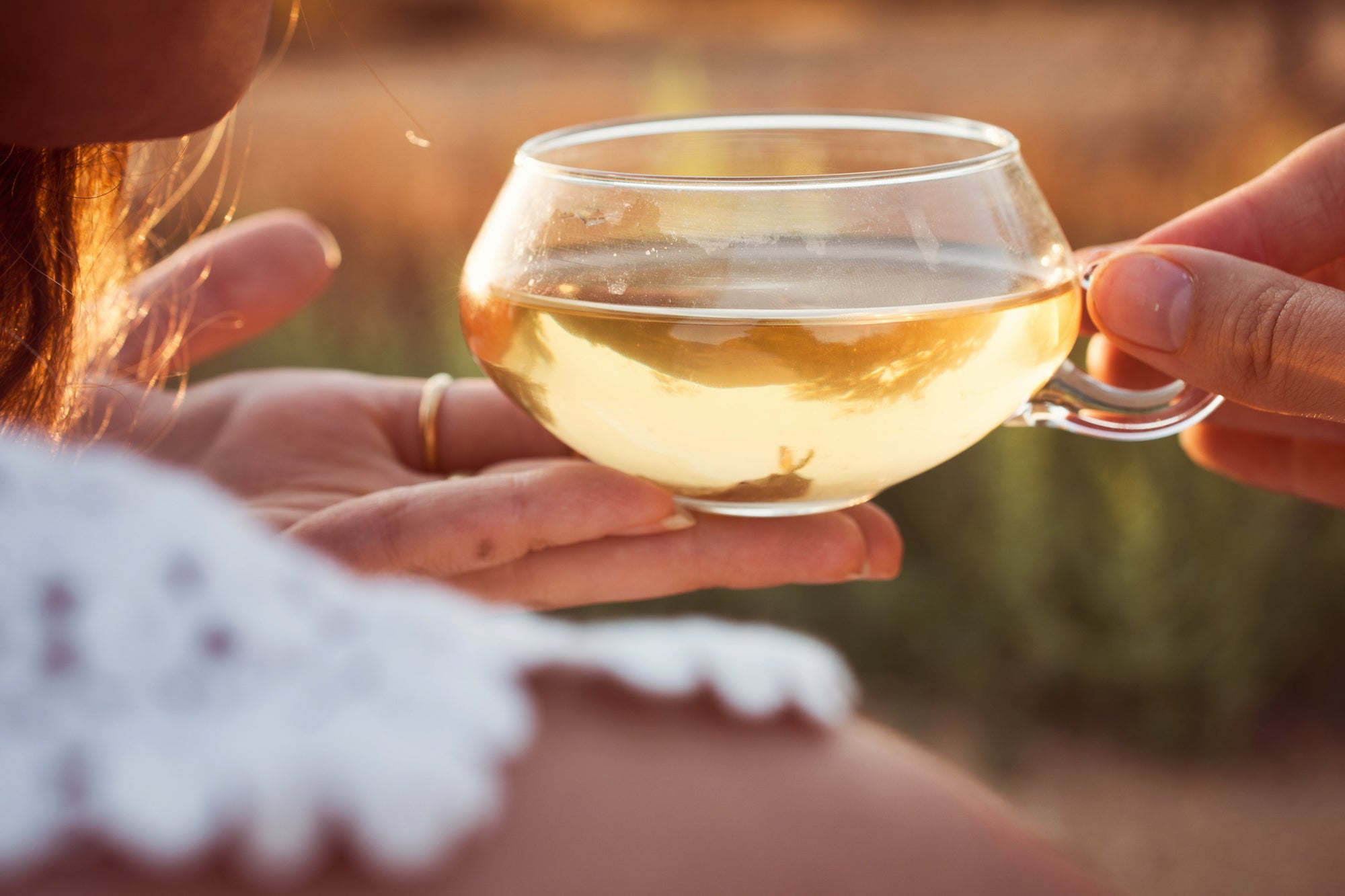Make tea, do less, mindfully rest.
Mindful rest is maybe something you’ve never heard of, but it’s the state of rest that is intentionally meant to give your brain a reprieve from thinking. It isn’t sleep, and it isn’t inactivity but a sort of daydreaming float that allows your brain to connect dots unrelated to what you’re doing. Not sleepwalking, but trance like. Mindful rest is a ritual I hope you are able to put in your schedule in 2020 J.
For me, I make a cup of tea and walk around our property with it, gazing at the trees, plants, flowers—watching the birds circle in the sky. Sometimes it’s most soothing to simply bundle up and sit down by the creek where we live. Finding a rock in the center of running water then just watching the water flow for 15 minutes often feels like I’ve taken a vacation. Another favorite “mindful rest” exercise for me is sweeping, I love to sweep—there is even a Japanese meditation based on sweeping. If you come by our tea shop in the mornings, you’ll find me sweeping with a contented look on my face—nirvana is found in the ordinary.
There is a Buddhist practice called a “Circle Day,” which is a day where one does nothing except meander and discover, relax and ponder. Mindful rest can be active, but it must be without an actual task to complete. Picking up pen to doodle might occur, but mindful rest must be by nature without assignment. Proper rest is when you are not pursuing a to do, nor while on a screen. It’s simply “spacing out,” staring at the sky, daydreaming—consciously doing nothing in particular in order to see what arises then simply being with it. Studies have shown your brain needs time to chill out and do nothing other than connect dots on its own—for an hour a day, and also full day a week. This allows it process its thoughts and to reflect in order to function optimally.
I’ve found that tea leaves—meaning the leaves of the Camellia Sinensis plant, help me with mindful rest, due to the high levels of the amino acid L-Theanine found in green, white and black tea leaves. This amino acid has proven to help our brains function on a higher level—activating both the left and the right brain to fire at once, creating a sense of bliss and good will.
Our brains need waking rest as much as they need sleep and REM. L-Theanine allows the brain to achieve what is “relaxed thought,” which is a calm—perhaps meandering—goalless form of thinking. In contrast, coffee’s form of caffeine causes the brain to leap, jump, want to take action—remember the line, “Coffee is for closers?” Yes, it gives the brain a task to achieve while tea is a more mellow form of stimulation because it’s the only plant on the planet that tames its caffeine wisely with L-Theanine, which allows the brain to ponder, reflect and ultimately be more creative in the long-term.
Mindfulness is about noticing, in the details we notice the infinite. Sipping tea—especially green and white teas—is not only neuro-protective, but gently stimulating, allowing for both the creative and the organized parts of our brains to converse in ease. The more mindful rest we take in a given day, the more connections our brains can make—tea is my means of facilitating this.
Making tea, sipping it, taking time for the simple and sacred process of mindful rest, this is how I ultimately achieve more in my life—the do less achieve more model is a real and effective means to living more aware and connected to yourself, nature and to others.
May your 2020 schedule include daily mindful rest sessions, I promise you will only be more productive and happier for it :)
Magically Yours, Zhena







